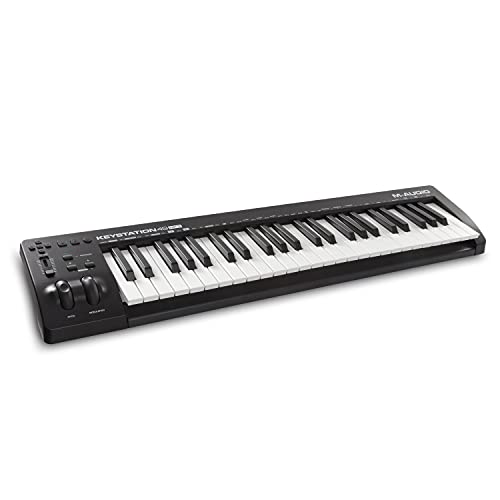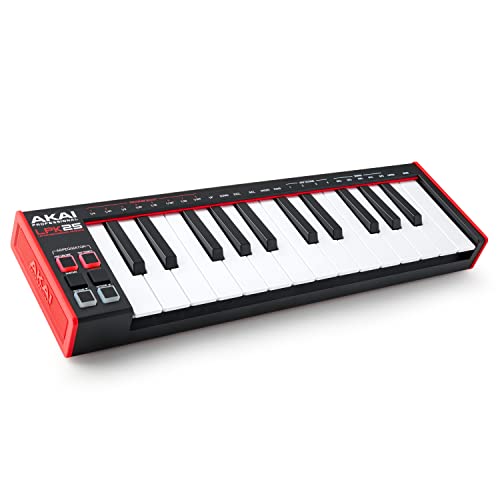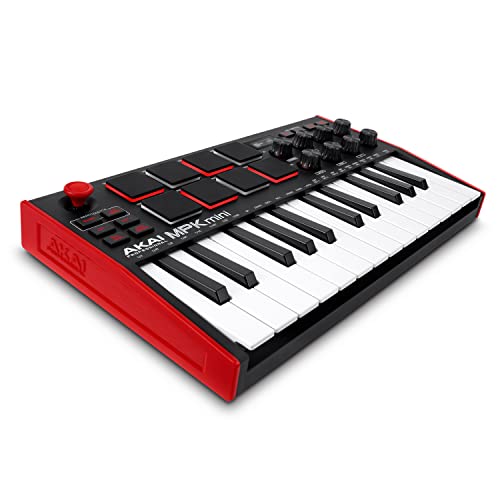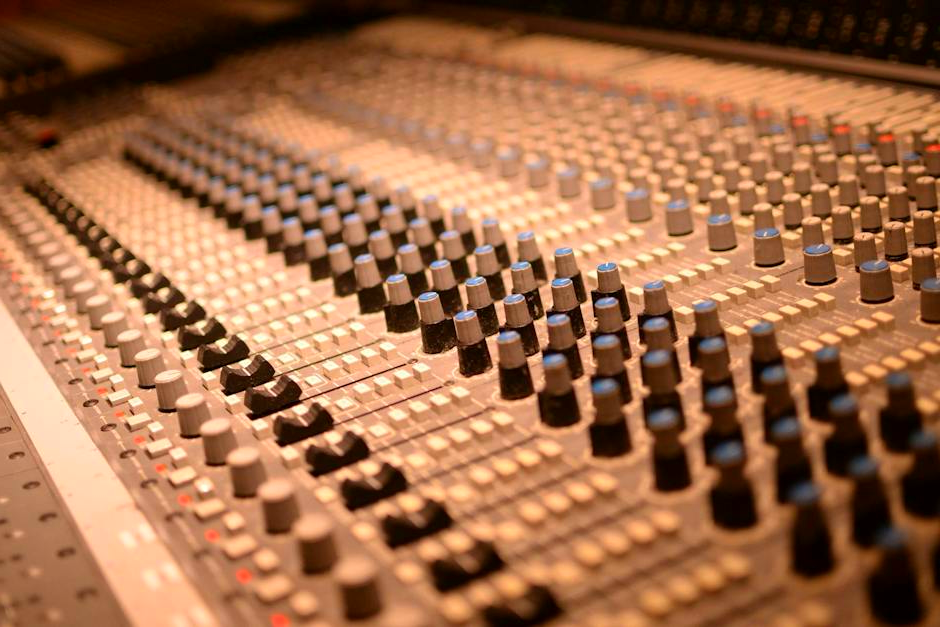Midi keyboards are crucial tools for musicians, producers, and hobbyists looking to create electronic music. These versatile instruments are perfect for both live performances and studio recording, providing numerous features that can enhance and streamline your music-making process. However, midi keyboards differ in quality, and to ensure your music has the best sound, it’s important to select a midi keyboard that perfectly aligns with your specific requirements.
The best midi keyboard should have an excellent key action, be highly responsive and offer various controls to help effectively capture your musical ideas. In recent years, we have tested and used over a dozen midi keyboards catering to different needs and preferences. The results from our rigorous testing process have led us to identify certain premium models that offer superior quality both to beginners who are just starting out and professional musicians who require advanced features for their compositions.
Key attributes to look for when purchasing a midi keyboard are: the number and type of keys (25, 49, or 61 keys), aftertouch, sensitivity, additional controls (pads, knobs, faders), and overall build quality. Each of these elements contributes to the overall feel and performance of the instrument, and as such, the choice should be made carefully.
In this article, we will guide you through our comprehensive buying process, where we have carefully recorded our detailed findings, rigorously tested features and functionalities, and ultimately, chosen the best midi keyboards on the market. Our guide will offer a clear insights into the key features of each model, their unique selling points, and whether they could be the right choice to take your music-making to the next level.
Best Midi Keyboards
Selecting the right Midi Keyboard can significantly impact your music-making process, yielding everything from enhanced creativity to improved productivity. The standout features to pay close attention to are key sensitivity, range of controls, and the overall build quality. With countless options in the market, choosing the right one can seem daunting. We’ve made the process simpler by compiling a list of the best midi keyboards, painstakingly tested, and grouped by their key features, to help you make an informed decision.
M-Audio Keystation 49 MK3

If you’re looking for a simple, reliable, and affordable MIDI controller, the M-Audio Keystation 49 MK3 is a great option to consider.
Pros
- The Synth-action keys provide a more realistic and responsive feel than other budget controllers.
- The controller is USB-powered and class-compliant, so it’s easy to set up and use with any DAW or virtual instrument software.
- The Keystation 49 MK3 comes with a great selection of software instruments and effects, including Ableton Live Lite, AIR Hybrid 3, and Sonoma Padshop.
Cons
- The controller only has 45 normal sized keys, which may be too small for some users.
- The controller doesn’t have any pads or drum pads, which may limit its versatility for some users.
- The controller’s construction feels a bit flimsy, which may be a concern for some users.
We’ve used the M-Audio Keystation 49 MK3 as our primary MIDI controller for several months, and we’ve been overall satisfied with its performance. The Synth-action keys provide a more realistic and responsive feel than other budget controllers, which makes it easier to play and compose music. The controller is also USB-powered and class-compliant, which means you can plug it in and start making music right away without any additional setup.
One of the best things about the Keystation 49 MK3 is the software bundle that comes with it. The controller comes with Ableton Live Lite, AIR Hybrid 3, and Sonoma Padshop, which provide a great selection of sounds and instruments to work with. This makes it a great option for beginners who are just starting out with music production.
However, there are a few downsides to the Keystation 49 MK3. The controller only has 45 normal sized keys, which may be too small for some users. Additionally, the controller doesn’t have any pads or drum pads, which may limit its versatility for some users. Finally, the controller’s construction feels a bit flimsy, which may be a concern for some users.
Overall, if you’re looking for a simple, reliable, and affordable MIDI controller, the M-Audio Keystation 49 MK3 is a great option to consider. It provides a responsive and realistic feel, is easy to set up and use, and comes with a great selection of software instruments and effects.
midiplus AKM320 Midi Keyboard Controller

If you’re looking for a MIDI controller that is easy to use and has a sleek design, the midiplus AKM320 MIDI Keyboard Controller might be the perfect fit for you.
Pros
- The controller is easy to set up and use, making it ideal for beginners.
- It has a compact and portable design, making it easy to carry around.
- The controller is compatible with most DAWs, making it versatile.
Cons
- The keys might feel a bit stiff for some users.
- The controller might not be suitable for advanced music production.
- The build quality might not be as durable as some users would like.
We’ve been using the midiplus AKM320 MIDI Keyboard Controller for a few weeks now, and we’re impressed with its overall performance. The controller is easy to set up, and we were able to start producing music within minutes of opening the box.
One of the things we really like about this controller is its compact and portable design. It’s perfect for producers who are always on the go, as it can easily fit into a backpack or a carry-on bag. The controller is also lightweight, which makes it even more portable.
Another thing we like about this controller is its compatibility with most DAWs. Whether you’re using Ableton Live, FL Studio, or Logic Pro, the midiplus AKM320 MIDI Keyboard Controller should work seamlessly with your software. This makes it a versatile controller that can be used by a wide range of producers.
However, there are a few things we don’t like about this controller. The keys might feel a bit stiff for some users, which could make it difficult to play complex melodies or chords. Additionally, the controller might not be suitable for advanced music production, as it only has 32 keys and a limited number of pads and knobs.
Overall, we think the midiplus AKM320 MIDI Keyboard Controller is a great choice for beginners or hobbyists who are looking for a simple and affordable MIDI controller. Its easy-to-use design, compact size, and compatibility with most DAWs make it a great choice for anyone who wants to start producing music.
AKAI Professional LPK25 – USB MIDI Keyboard Controller with 25 Responsive Synth Keys for Mac and PC, Arpeggiator and Music Production Software,black

If you’re looking for a compact and portable MIDI controller for your music production needs, the AKAI Professional LPK25 is definitely worth considering.
Pros
- The 25-key layout is perfect for producing on the go, fitting easily into a backpack or bag.
- The keys have a pleasantly responsive feel to them, making playing and composing a breeze.
- The controller comes with a free 3-month subscription to Splice, giving you access to millions of sounds and samples.
Cons
- The controller is bus-powered, so you’ll need to make sure your computer has enough power to run it.
- Some users have reported issues with the controller’s stability, requiring frequent re-connections.
- The controller doesn’t come with a power adapter, so you’ll need to purchase one separately if you plan on using it without a computer.
We’ve been using the AKAI Professional LPK25 for a few weeks now, and we’re really impressed with its performance. The compact size of the controller makes it easy to take with us on the go, and the responsive keys make playing and composing a breeze.
One of the standout features of this controller is the included music production software bundle. With a free 3-month subscription to Splice, you’ll have access to millions of sounds and samples, allowing you to create truly unique and professional-sounding tracks.
While the controller is bus-powered, we haven’t experienced any issues with stability. However, some users have reported issues with the controller disconnecting frequently, requiring frequent re-connections. Additionally, the controller doesn’t come with a power adapter, so you’ll need to purchase one separately if you plan on using it without a computer.
Overall, we highly recommend the AKAI Professional LPK25 to anyone in the market for a compact and portable MIDI controller. With its responsive keys, included software bundle, and affordable price point, it’s a great choice for both beginners and experienced producers.
AKAI Professional MPK Mini Play MK3 – MIDI Keyboard Controller with Built in Speaker and Sounds Plus Dynamic Keybed, MPC Pads and Software Suite,Black

If you’re looking for a portable MIDI controller with built-in speakers, the AKAI Professional MPK Mini Play MK3 is a great option to consider.
Pros
- The built-in speakers make it easy to create and produce music on the go without needing to bring along additional gear.
- The dynamic keybed and MPC pads provide a responsive and tactile playing experience.
- The included software suite provides a range of sounds and production tools to get started with.
Cons
- The speakers aren’t incredibly powerful, so they may not be suitable for loud or intense productions.
- The controller is quite compact, which may make it difficult to use for extended periods of time.
- The price point may be a bit steep for those on a tight budget.
Overall, we’ve found the AKAI Professional MPK Mini Play MK3 to be a solid choice for anyone looking for a portable MIDI controller with built-in speakers. The dynamic keybed and MPC pads provide a great playing experience, and the included software suite provides a solid foundation for producing music. While the speakers may not be the most powerful, they’re sufficient for casual listening and production.
One thing to keep in mind is that the controller is quite compact, which may make it difficult to use for extended periods of time. Additionally, the price point may be a bit steep for those on a tight budget. However, if you’re looking for a portable MIDI controller with built-in speakers and a solid set of features, the AKAI Professional MPK Mini Play MK3 is definitely worth considering.
AKAI Professional MPK Mini MK3 – 25 Key USB MIDI Keyboard Controller With 8 Backlit Drum Pads, 8 Knobs and Music Production Software Included

If you’re looking for a compact and portable MIDI controller, the AKAI Professional MPK Mini MK3 is a great option.
Pros
- The 25-key velocity-sensitive keyboard is perfect for playing chords and melodies.
- The 8 backlit RGB drum pads allow for excellent pad customization.
- The 8 assignable knobs provide easy access to your favorite software parameters.
Cons
- The pitch and modulation controls are placed in an awkward position.
- The controller is a bit heavy to be considered truly portable.
- The price point may be a bit high for some budget-conscious buyers.
We’ve used the AKAI Professional MPK Mini MK3 for a few weeks now, and we’re impressed with its performance. The 25-key velocity-sensitive keyboard is perfect for playing chords and melodies, and the 8 backlit RGB drum pads allow for excellent pad customization. The 8 assignable knobs provide easy access to your favorite software parameters, making it easy to tweak sounds on the fly.
One thing to note is that the pitch and modulation controls are placed in an awkward position, which can make them difficult to access while playing. Additionally, the controller is a bit heavy to be considered truly portable, which may be a dealbreaker for some buyers.
Overall, if you’re looking for a compact and powerful MIDI controller, the AKAI Professional MPK Mini MK3 is definitely worth considering.
Buying Guide
When it comes to choosing the best MIDI keyboard, there are several factors to consider. As experienced musicians and producers, we understand the importance of finding a keyboard that suits your needs and preferences. In this section, we will discuss the key features to look for when purchasing a MIDI keyboard.
Size and Weight
One of the first things to consider when choosing a MIDI keyboard is its size and weight. If you plan on taking your keyboard on the go, you’ll want to look for a lightweight and compact option. However, if you’re looking for a keyboard to use in a studio setting, you may want to opt for a larger and more heavy-duty model.
Keys and Pads
Another important factor to consider is the number of keys and pads on the keyboard. If you’re a pianist or plan on playing complex chords, you’ll want to look for a keyboard with a full 88-key range. However, if you’re primarily using the keyboard for drum programming or other percussive sounds, a smaller 25-key or 49-key model may suffice.
Connectivity
Connectivity is another important consideration when choosing a MIDI keyboard. Look for a keyboard with a variety of input and output options, such as USB, MIDI in and out, and audio outputs. This will allow you to connect your keyboard to a variety of devices, including computers, synthesizers, and audio interfaces.
Additional Features
Finally, consider any additional features that may be important to you. For example, some keyboards come with built-in sequencers, arpeggiators, or other sound-shaping tools. Others may have touchscreens or other interactive displays. Think about what features are important to you and your specific needs as a musician or producer.
By considering these factors, you can find the best MIDI keyboard to suit your needs and preferences. Whether you’re a beginner or a seasoned pro, there’s a MIDI keyboard out there that’s perfect for you.





